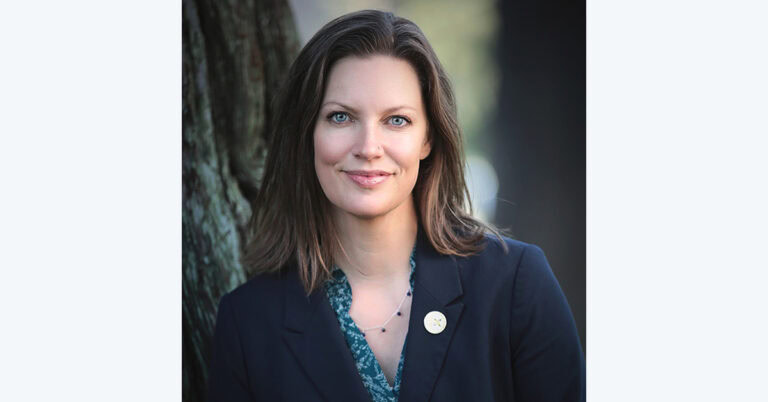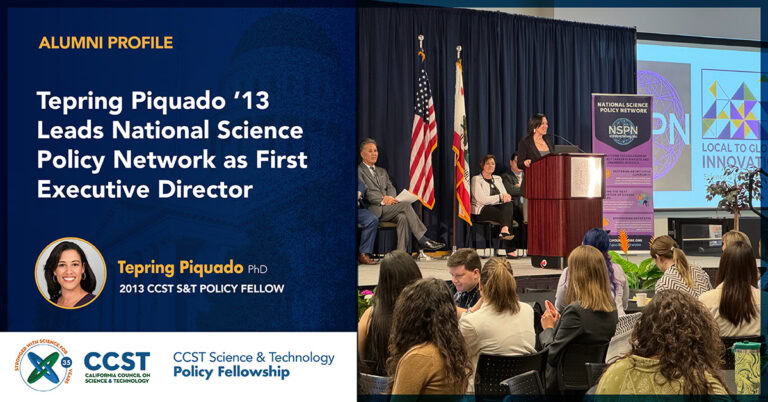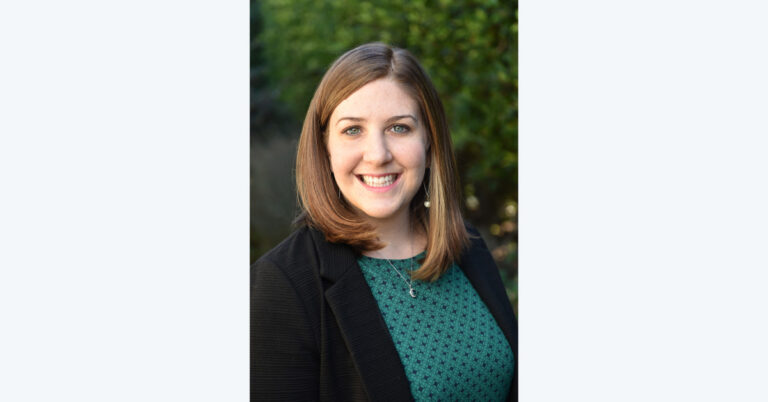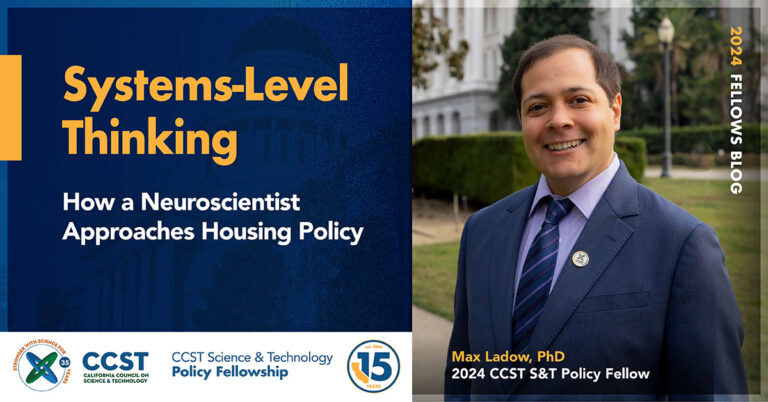CCST’s Brie Lindsey, PhD, Hired as Deputy Director at California Ocean Science Trust
Fellows Profile: Nathan Phillips, PhD
November 23, 2015 | CCST S&T Policy Fellows

Nathan Phillips, PhD, was a CCST Science & Technology Policy Fellow in 2014, and his placement was in the California State Senate Transportation and Housing Committee with then-Chair Mark DeSaulnier. He is currently a Professor of Earth and Environment at Boston University, and had applied to the Fellowship on sabbatical from his post. Phillips received his PhD from the Nicholas School of the Environment at Duke University, specializing in the health, ecology, and physiology of trees and forests.
Name: Nathan Phillips
Fellowship Year: 2014
Fellowship Placement: Senate Transportation and Housing Committee
Q: Why did you originally decide to seek out a policy fellowship experience?
A: Part of my research at Boston University had developed direct policy implications, which led to my testifying at the Massachusetts State House on bills. I realized I had no idea what happened on the other side of the dais and within the halls and offices of the legislature. It made me feel one-dimensional and incomplete as a scientist and scholar. The CCST Fellowship looked like a perfect way to experience the full relationship between science and policy.
Q: Think back to your first month with CCST. How did you feel during that first month of “policy boot camp” trainings and meeting your new colleagues?
A: I felt like a freshman in college, and it’s something like that experience. You meet a bunch of new people while jumping into a new learning experience. Everyone feels a little like a deer in the headlights, but the CCST staff were great about making us feel right at home with them and each other. Today, I have a group of dear friends who shared that incredible year-long journey with me.
Q3: What, in your experience, was the most surprising aspect about participating in the lawmaking process and working with policymakers?
A: The way innovative ideas are shared. In academia, it’s all about getting one’s name on a publication and in the press. In “The Building” (as we insiders call the State Capitol…), as a staffer that’s the last thing you want.
What results is a different kind of think tank atmosphere. Among my committee staff colleagues, the policy idea sharing flowed much more freely than in my academic experience. Reputation, achievement, and credibility are no less important and are still recognized, but in different ways than a list of publications on a CV.
Q: Did you find that your professional skills and instincts grew as the Fellowship year went on? Were the CCST trainings and events helpful to your professional development?
A: Most definitely. I learned a great deal about discretion, judgment and diplomacy. One of the most important lessons I learned from staffing my committee chair is the value of distinguishing between one’s human connection with another person, and one’s degree of alignment with their policy position. We can disagree on a policy and yet maintain a productive and friendly working relationship that can bear fruit on another issue. I try to learn more about a person now before identifying them primarily by their profession.
Q: What’s it like networking and working as a professional policymaker in the capital of the State of California?
A: The stack of business cards after a year was incredible. Many came from lobbyists. I learned not to fear lobbyists, and that lobbyist is not necessarily a bad word — there are good and bad ones. And they are people doing a job, just like anyone.

Q: In the course of the Fellowship, did you gain any mentors? How have those relationships helped your personal and professional growth?
A: I had superb mentors. My committee chief consultant and the entire committee staff were incredible mentors. As a mid-career academic, you have to let go of all your accumulated knowledge and open up to learning the basics. My staff mentors gave me a perfect balance of guidance and freedom. The CCST staff were also amazing mentors — seasoned veterans who’ve seen most everything and clearly enjoyed experiencing it anew through mentoring fellows through their experiences.
Q: What are some of your favorite memories or proudest accomplishments from your Fellowship year? What were some of the most challenging moments or lessons learned?
A: I am so proud to have staffed a bill on a topic to which I’m very committed — bicycling as practical transportation — that has now been signed into law. I am also proud to have organized and written background and summary papers for two Senate informational hearings on crucial topics for California’s transportation and housing future.
Q: What did you come to love and appreciate during your year living in Sacramento or living in California?
A: On a personal level, I grew up in Sacramento and still have deep family roots there. My CCST year was also an incredible homecoming and personal opportunity to reconnect with loved ones.
Q: Do you feel like you’ve made a difference?
A: I staffed a bill that is now law — so yes!
Q: How has the Fellowship impacted the trajectory of your career?
A: I have spent more time in the Massachusetts State House in the year after my CCST experience than I had in the 14 years previous to CCST. I am much more engaged in the science-policy nexus. It has changed how I communicate my research: I learned from my staff colleagues how academics can sometimes be tone deaf if they just deliver information they think is important rather than communicate about what is important with policymakers.
It also has changed how I teach my classes — this term my students are writing briefing papers based on observations from trips to bill and informational hearings in the state house. And I am much more comfortable talking with staffers and elected officials — the mystery and self-generated intimidation are gone.
Q: What is your advice for scientists and engineers who want to apply their science to inform public policy?
A: For mid-career people like myself: check your ego at the door, channel your junior lab member or student intern — and you’ll liberate yourself up for an incredible learning — and doing — experience.
Q: Would you recommend the CCST Science & Technology Policy Fellowship to a prospective applicant?
A: Yes!
Follow updates from the CCST Fellows at facebook.com/ccstfellows and twitter.com/ccstfellows. Learn more about the CCST Science & Technology Policy Fellowship here.






